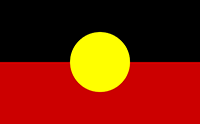
What’s the Deal with 4 months?
By 4 months, a lot of families find that they are starting to get into the groove with their baby. Then, all of a sudden, it feels as if things have turned on their head. The frozen meals are running out, the offers of help seem less and the baby you thought you were finally starting to work out all of a sudden seems completely different. Parents who have walked this path before look at you in a certain way, almost with sympathy, when you say your baby is 4 months old. So what has changed?
4 months can herald what is described as the dreaded “four month sleep regression”. In actual fact, this time signifies a change in sleep requirements for a lot of babies. Parents sometimes expect their babies to sleep as much as they did as a newborn, which may lead to a disruption of circadian clock and frequent night waking. Attempting to achieve the “sleep begets sleep” instruction, parents despair as their babies “catnap” and worry that less sleep hinders their development. There is absolutely no evidence that this is the case. Babies undergo huge leaps in development at this time, and by providing a rich and changing sensory environment families can support this. It is also beneficial for the mental health of parents to be outside the four walls of their home.
Breastfeeding can also look very different at 4 months. Babies that previously had long frequent feeds may become fussy at the breast, or feed only for a couple of minutes at a time. Mums often worry about their baby “getting enough”. 4 month old babies are highly distractible and often enjoy looking around the room whilst feeding – it is a very exciting phase in their development as they begin taking in the world around them. On top of this, babies become a lot more efficient at the breast and are able to take in much more during a feed than they did as a newborn. Sometimes this means Mums get concerned that their baby isn’t having as much milk as they haven’t fed for long – another one of those situations were confidence takes a hit because breasts don’t come with measuring markers! Sometimes as a result of brief, distracted feeds during the day, babies wake up more overnight for a feed. Any kind of settling other than a feed in this scenario may undermine a mother’s supply, so it is important to follow baby’s cues if this occurs, although it can feel like a very lonely time. Trust that your baby will let you know when it is hungry and try not to take it personally if they won’t take a feed when you expect them too. Keep an eye on their wet nappies to reassure you that they are still getting the milk that they need.
Having been there, I suggest you become very well acquainted with your local barista, schedule activities or catch ups most days, exercise with baby when you can and ask for help if you need it. The house may not be as clean and the meals may not be as elaborate, but your baby will be becoming more interactive every day and teaching you more in the meantime.
by Dr Rhiannon Smith







